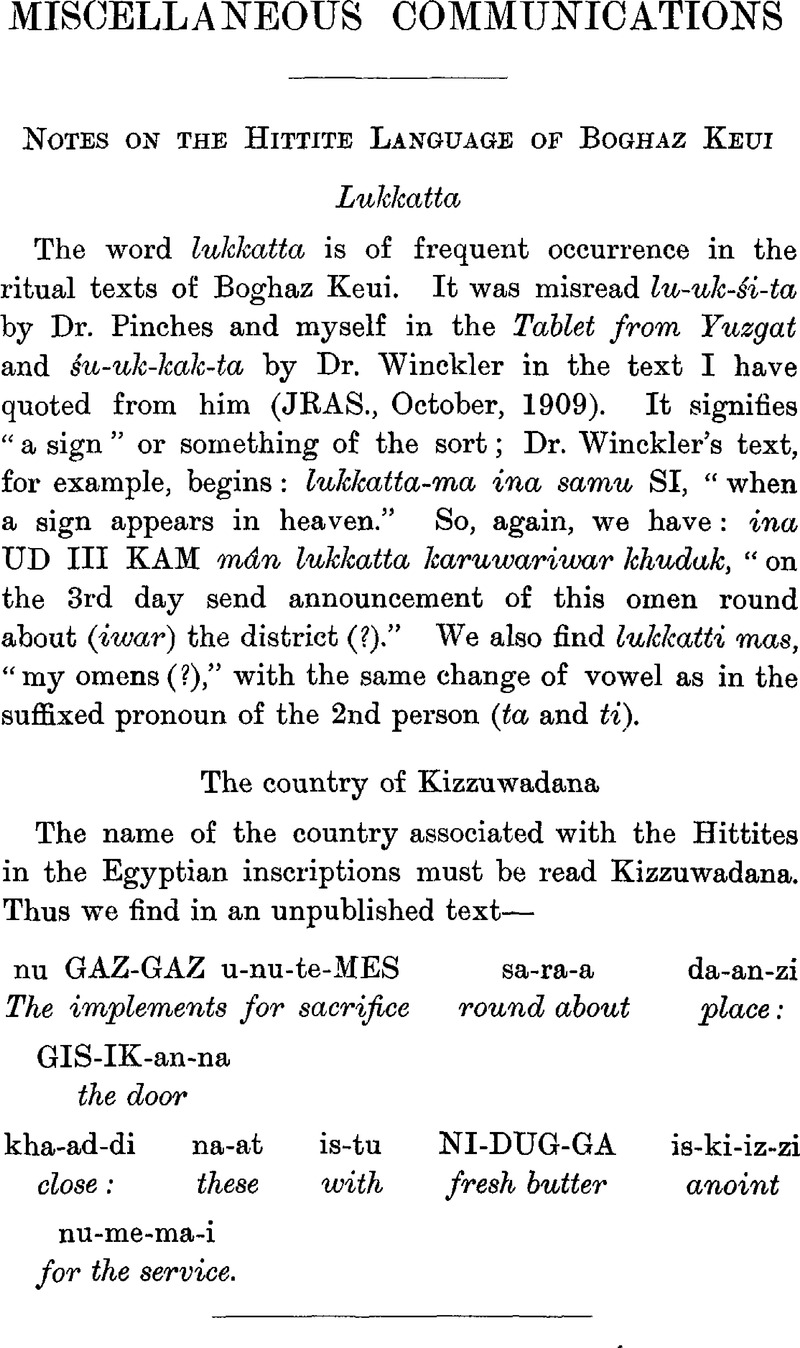No CrossRef data available.
Article contents
Notes on the Hittite Language of Boghaz Keui
Published online by Cambridge University Press: 15 March 2011
Abstract

- Type
- Miscellaneous Communications
- Information
- Copyright
- Copyright © The Royal Asiatic Society 1913
References
page 1044 note 1 I transcribe 〈 o in order to distinguish it from ![]() It is plain, however, that its value was really u.
It is plain, however, that its value was really u.
page 1045 note 1 In a tablet published by Mr. Campbell Thompson (PSBA., June, 1910) the suffix -za must be equivalent to “in”: SARRU-us za-gan ALU Ku-ti-la-za ar-kha e-ib-si AN-ALU-MAT-sa-as-si AMEL-[SANGU] bi-ra-an khu-o-i-ya-an-te-es …, “The king at this time is (Ass. ibsi) for a month in the city of Kutila; the table of the [priest] of the god of the city-land setting up (?) there [he has ].” Two lines further we have the accusative AN-ALU-MAT-si-in GAN, “the garden of the god of the city-land.”
page 1046 note 1 Similar variations of spelling occur in the word which is normally written u-un-ni-ya-an-zi, “fetch” or “bring”.
page 1046 note 2 That anis, however, meant “letters” is shown by a passage in one of the tablets, where we read a-na a-ni-is-DUP-ZUN, “for the tablets.”


